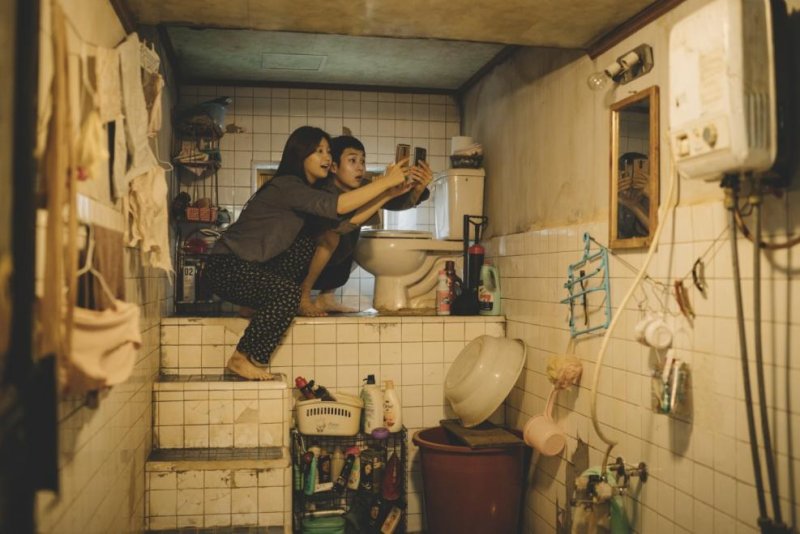By Elizabeth Shim UPI

Households residing in half-basement homes in Seoul -- like this one depicted in the movie "Parasite" -- qualify for government-funded repairs, according to a local press report on Tuesday. Photo courtesy of Neon/CJ Entertainment
Feb. 18 (UPI) -- Academy Award-winning South Korean film Parasite may be having a trickle-down effect on real-life dwellers of half-basement homes in the country, following the film's portrayal of poverty, according to a local press report.
South Korean news service Money Today reported Tuesday the city of Seoul and the Korea Energy Foundation are to provide customized home renovations, including better heating and air-conditioning, for low-income households in the country's capital.
The renovations are designed to support 1,500 homes, or a fraction of the total number of households located in subterranean or near-subterranean dwellings. Seoul is home to about 228,000 half-basement homes, or about 60 percent of the total.
Director Bong Joon-ho's film depicts half-basement homes as smelly and gritty. The apartment's susceptibility to floods, pests and mold serve as a symbol of downward mobility for one of the families depicted in the movie.
RELATED Tourists flock to 'Parasite' locations in South Korea
Qualifying low-income families will receive about $3,000 in financial support for renovations, particularly for "indoor pollution caused by moisture and mold" that leads to "asthma, allergies and depression," according to Money Today.
Households that qualify are those with income below 60 percent of South Korea's baseline income.
For years, ordinary South Koreans have said they are struggling to make ends meet. South Korea is a rich country and an Organization for Economic Cooperation and Development member state. But it also has one of the most anemic social safety nets among developed economies, welfare groups have told UPI.
RELATED South Korea president congratulates 'Parasite' director Bong Joon-ho
Poverty among the elderly is a serious problem, and senior citizens can be seen picking up recyclable waste to make ends meet in Seoul.
The government may soon be banning the practice, however.
South Korea's ministry of environment said Tuesday the ban applies to 65 major apartment complexes in the metropolitan area of Seoul, a sign the policy could expand further, News 1 reported.
RELATED 'Parasite' wins Best Picture, Best Director at 2020 Oscars
The announcement comes after Chinese restrictions against exported recyclable wastepaper from South Korea were implemented in 2018, according to the report.
No comments:
Post a Comment